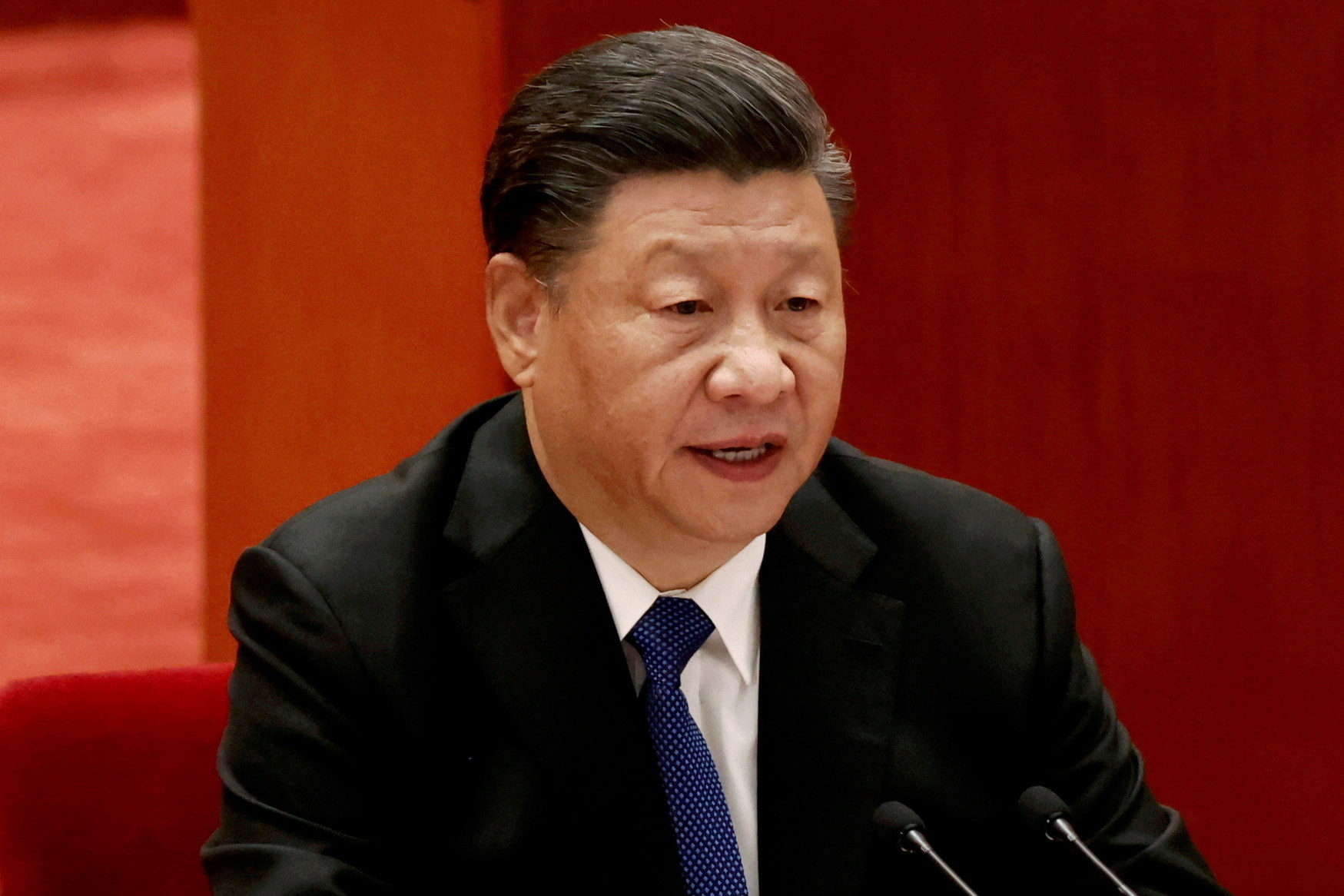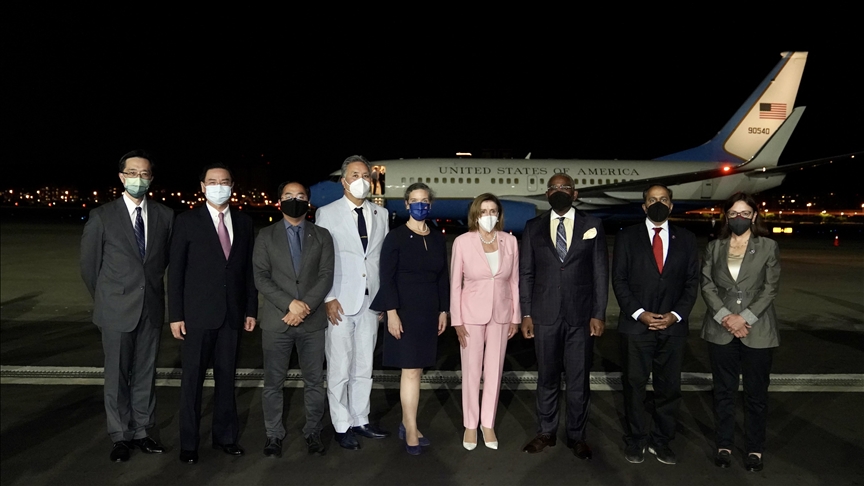
Music icon and human rights campaigner, Fela Anikulapo-Kuti, is considered one of the best musicians that the African continent has ever produced. His music, no doubt, transcends the notion of entertainment.
Fela’s Afrobeat creation, woven with such impressive aesthetic embellishments and backed up with maverick instrumentals, has made his songs alive, robust and entertaining even long after his demise.
The popular lyrics of his song, ‘Palaver’, succinctly elucidate the diplomatic imbroglio the world is facing in the relationship between China and Taiwan.
According to the lyrics of Fela’s song laid out in pidgin, “When cat sleep, and rat go bite the tail, Na wetin e dey find O? Palaver e day find, na palaver he go get O.”
In his deep African vocals and quasi-rapping pidgin English that has made it impossible for his audience to get enough of his afro-beat rhythm, Fela was saying in his own way, that anytime you stir the hornet’s nest, the unpleasant result would always be very challenging to manage.
The international community has always managed the delicate relationship between China and Taiwan until the recent top-level visit of the Speaker of the US House of Representatives to Taiwan.
China has explained to the world clearly that Taiwan, through its “one China” policy, will remain a part of the country – although after the Chinese civil war, the defeated Kuomintang or Nationalists fled to the island in 1949 – and has remained autonomous under the name Taiwan.
It initially seemed that the two “brother-countries” were gravitating towards some form of agreement when the Kuomintang party, which favours close ties with China, was in power. In fact, Taiwan leader then, Ma Ying-jeou, held a landmark meeting with Chinese President Xi Jinping in Singapore in 2015.
However, when the Democratic Progressive Party’s Tsai Ing-wen first became President of Taiwan in 2016, Taiwan-China ties were at its lowest ebb. China promptly cut off all formal dialogue mechanism, and a belligerent posture resumed between the two territories.
Beijing believes Tsai, who won re-election by a landslide last year, wants to push Taiwan’s formal independence – a red line for China. While Taiwan says it will defend the island’s freedom and democracy.
As stated earlier, the “palaver” began to brew on 2 August, when the Speaker of the US House of Representatives, Nancy Pelosi, visited Taiwan in disregard to China’s strong opposition and serious representations. This clearly was a serious violation of the one-China principle and the provisions of the three China-US joint communiqués.
It had an immediate negative impact on the political foundation of China-US relations, for China saw it as a serious infringement upon its sovereignty and territorial integrity. China also believes it gravely undermined peace and stability across the Taiwan Strait, and sends a wrong signal to the separatist forces for “Taiwan independence.” China firmly opposes and sternly condemns this, and has already made strong protest to the United States.
The Taiwan Work Office of the Communist Party of China Central Committee, on August 2, issued a statement that the visit of US House Speaker Nancy Pelosi to Taiwan “severely violates the one-China principle and the three China-U.S. joint communiques, it seriously tramples on international laws and the basic norms governing international relations, breaks the serious political commitment the United States has made to China, and sends a seriously wrong signal to forces seeking “Taiwan independence. We firmly oppose the move and express our strong condemnation and protest.”
The one-China principle is a widely recognized norm of international relations and a consensus accepted by the international community. This means the world agrees that there is only one China in the world and Taiwan is an inalienable part of China’s territory. It also means the Government of the People’s Republic of China is the sole legal government representing the whole of China.
In this light, the world should see the Taiwan question as a matter of China’s internal affairs and there should be no external interference.
This fact has equally been clearly recognized by the United Nations General Assembly Resolution 2758 of 1971. Since the founding of the People’s Republic of China in 1949, 181 countries have established diplomatic relations with China on the basis of the one-China principle. The one-China principle has remained universal consensus of the international community and a basic norm in international relations.
In 1979, the United States made a clear commitment in the China-US Joint Communiqué on the Establishment of Diplomatic Relations thus: “The United States of America recognizes the Government of the People’s Republic of China as the sole legal Government of China. Within this context, the people of the United States will maintain cultural, commercial, and other unofficial relations with the people of Taiwan.”
This agreement remains one key reason why China and most members of the international community feel the US Congress, as a part of the US Government, is inherently obliged to strictly observe the one-China policy of the US Government and refrain from having any official exchanges with China’s Taiwan region.
China has remained totally opposed to the visit to Taiwan by US congressional members, and the US executive branch has the responsibility to stop such visits. Since Speaker Pelosi is the incumbent leader of the US Congress, her visit to and activities in Taiwan, in whatever form and for whatever reason, are a major political provocation.
Diplomatic analysts have identified the Taiwan question as the most important and most sensitive issue at the very heart of China-US relations. The Taiwan Strait is facing a new round of tensions and severe challenges, and the fundamental cause is the repeated moves by the current Taiwan authorities and the United States to change the status quo.
The Taiwan authorities have kept seeking US support for their independence agenda. They refuse to recognize the 1992 consensus, go all out to push forward “de-Sinicization” and promote “incremental independence.” The United States, on its part, has been attempting to use Taiwan to contain China. It constantly distorts, obscures and hollows out the one-China principle, steps up its official exchanges with Taiwan, and emboldens “Taiwan independence” separatist activities. These moves, like playing with fire, are extremely dangerous.
Regrettably, in recent times, the US government has made repeated errors in her policies towards China. It has repeatedly upgraded the levels of official exchanges with Taiwan, intensified their military collusion, and continued arms sales to Taiwan to support the latter’s attempt to “resist reunification by the use of force.”

The US Congress has repeatedly made false remarks on Taiwan, put forward, deliberated and passed multiple negative bills regarding Taiwan. Such US moves attempt to distort and hollow out the one-China principle, play “the Taiwan card,” “contain China with Taiwan,” and obstruct China’s complete reunification and the rejuvenation of the Chinese nation.”
The current US administration has not fixed the grave mistakes made by the previous administration. Instead, it has moved further to get allies on board and gang up with them to play “the Taiwan card,” flagrantly attack the United Nations General Assembly Resolution 2758, and spread the erroneous “uncertain status of Taiwan” theory in an attempt to internationalize the Taiwan question.
It is advisable for the US to stay clear-eyed about the historical ins and outs of the Taiwan question, recognize the fact and the status quo that both sides of the Taiwan Strait belong to one and the same China, strictly abide by the one-China principle with concrete actions, implement the three China-US joint communiques, and refrain from sliding further down the wrong path.
It is equally advisable for current authorities in Taiwan to completely give up the separatist schemes seeking “Taiwan independence”, stop going further down the doomed path of “Taiwan independence” to the point of no return. Any activity seeking “Taiwan independence” will be smashed by the mighty anti-secession and pro-reunification forces of the Chinese people.
The position of the Chinese Government and people on the Taiwan question seems quite consistent. It is the firm commitment of the more than 1.4 billion Chinese people to resolutely safeguard state sovereignty and territorial integrity. It is the common aspiration and sacred responsibility of all Chinese sons and daughters to realize the complete reunification of the motherland.
The one-China principle has become a basic norm governing international relations and an integral part of the post-Second World War international order. What the United States should do is to immediately stop violating the purposes and principles of the UN Charter and stop playing the “Taiwan card” to disrupt the Asia-Pacific region.
The reunification and rejuvenation of the Chinese nation have become a historical inevitability. China must be and will surely be reunified. The time and tide of achieving the reunification of the motherland have always been held firmly in our hands. The fact that Taiwan is part of China will not be changed no matter what actions are taken by the anti-China forces in the United States and by the DPP authorities in Taiwan.
It is quite soothing that the misguided actions of the US have not influenced friends of China, including Nigeria and other African countries. At the final reunification, China and all her friends will meet and clink glasses as toast to a new level of multilateral relationship.

